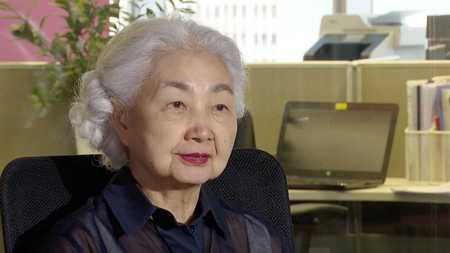02:10

Elsie Leung, former deputy director of the Hong Kong Basic Law Committee, gave her take on the newly-enacted anti-mask regulation in Hong Kong, which has sparked debate on whether it violates the Basic Law of Hong Kong and a national law of China.
"Of course the Basic law authorizes the legislative council to enact law. But the legislative council has already enacted the law, the law being the emergency regulation ordinance," she said. "The ordinance authorizes the chief executive in consultation with the executive council to make regulations which is necessary when Hong Kong's public security or public order is endangered, and I think this is the appropriate measure."
When asked whether this law is helping to ease the situation as expected, Leung gave a positive reply.
"The legislation would be effective in helping the police to identify the culprits because at the moment if they are covering their faces, unless you arrest them immediately at scene, otherwise you will not be able to catch the rioters, so I believe the regulation would prohibit them from covering up their identity," she said.
She also said this move would "add regulation which will enable the police to enforce the law."
The government of the Hong Kong Special Administrative Region (HKSAR) announced an "anti-mask law" on October 4, and it took effect on October 5.
"In the past four months, almost all protesters who carried out vandalism and violence had their faces covered. And the purpose was to hide their identity and evade the law, and they have become more and more daring," Lam said at a press conference, adding that over 1,100 people have been injured during more than 400 protests.